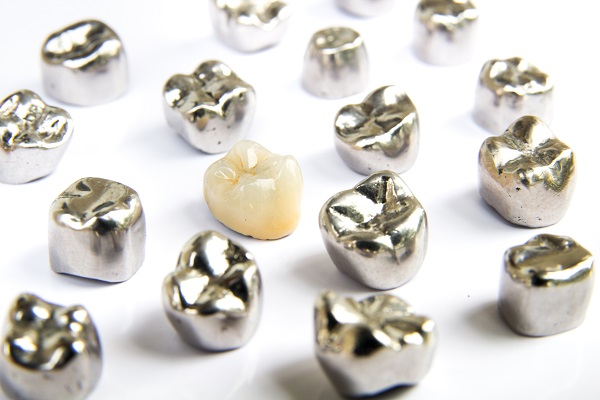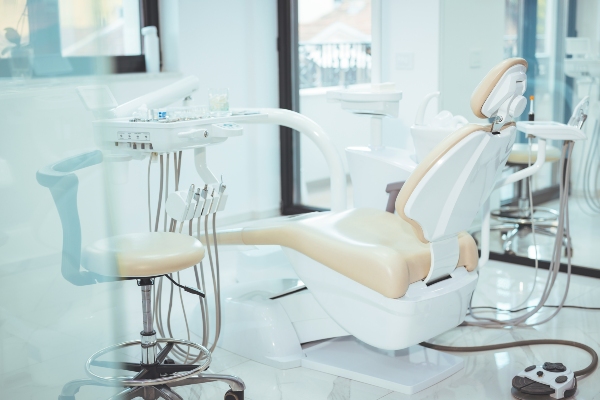What to Expect in a Dental Crown Procedure

When a filling is insufficient or a tooth is malformed, the dentist may suggest a dental crown to protect, cover, and restore the tooth's structure. While receiving a crown may seem strange or scary, it is a routine and safe process that can strengthen the teeth, extend their life, and restore the natural appearance of the smile. This article goes over what happens during the dental crown procedure.
Procedure for a dental crown
The dental crown treatment usually takes two sessions to complete. The primary concern of most patients is whether a dental crown is painful to get. Although some sensitivity may occur, the dentist will most likely provide an anesthetic during the procedure to keep the patient at ease.
The first consultation
The tooth will be examined and prepared for a crown by the dentist. They will recommend X-rays of the tooth and the supporting structures. They will then file down the enamel layer of the tooth. The extent of filing required depends on the kind of crown to be placed. Metal crowns, for example, need less tooth removal than porcelain crowns. If there is a risk of infection or harm to the tooth's nerves or blood vessels, the dentist might recommend a root canal.
The dental professional will use a paste to produce an imprint of the tooth that will receive the crown after it has been filed down and prepared. They will also imprint the teeth on the opposing jaw to ensure that the crown aligns properly with the bite. The imprint is then submitted to a lab for the crown production process, which takes two to three weeks. The dentist will place a temporary crown between the first and second visits to protect the tooth.
The second appointment
The crown will be placed during the second visit. The temporary crown will be removed, and the new crown will be checked for color, form, and fit before being securely bonded over the tooth.
Crowns in one visit
Certain dental offices may be able to insert dental crowns the same day using computer-aided design. Rather than patients having to wait a few weeks, scanning equipment captures photographs of the teeth, which are then used by software to create a 3D model. The model is then sent to a machine, which takes approximately 15 minutes to carve the crown out of ceramic. The dental care professional will cement it once it is ready.
The recovery process
It is normal to experience discomfort or inflammation after the procedure, but the recovery period should be brief. The dentist will provide aftercare instructions. Since the tooth has a slightly different form than the original tooth, it may feel different after the treatment. But the capped teeth should feel normal in a few days. If the patient still thinks that their bite feels off after a few days or if they are experiencing discomfort, they need to schedule an appointment with the dentist for evaluation and necessary modifications.
Taking care of the crown
It is advisable to keep up with good oral hygiene and treat the crown as if it were a natural tooth, since the tooth under the crown is still vulnerable to gum disease and decay despite its new appearance. Brush twice a day with a soft-bristle toothbrush and fluoride toothpaste, and floss once a day, taking care to clean between the crown and the surrounding teeth. Crowns are still prone to breaking and deterioration. Patients should avoid biting on rough surfaces to avoid chipping or damaging porcelain crowns.
Dental crowns may survive for many years if they are properly cared for. A dental crown can slip off over time if the cement degrades or the tooth that holds it starts to decay. The dentist will examine the crowns at every routine dental checkup to ensure that they are still securely affixed.
The materials used for making dental crowns
Porcelain, porcelain-fused-to-metal, base metal, and gold alloys are the four most common materials used in dental crowns. The dental professional will offer their personal recommendations, but patients can discuss the best material for their requirements and budget with the dentist.
In conclusion
Whatever type of crown you opt for, make sure you discuss the procedure, recovery, and aftercare with your dentist. A dental crown is a common and safe operation that may safeguard your teeth for many years while restoring your smile's natural and healthy appearance.
Request an appointment here: https://davisanddingle.com or call Davis & Dingle Family Dentistry at (803) 567-1804 for an appointment in our Columbia office.
Check out what others are saying about our dental services on Yelp: Dental Crowns and Dental Bridges in Columbia, SC.
Recent Posts
Proper care of a dental crown is essential for maintaining its appearance, function, and longevity. A dental crown restores damaged or weakened teeth, providing durability and protection to the underlying tooth structure. Although crowns are designed to withstand chewing forces, taking specific precautions ensures their long-term success and helps maintain oral health.A dental crown acts…
Many times, dental crowns are used to repair weakened or damaged teeth, especially those impacted by severe decay. However, this type of treatment also has a place in cosmetic dentistry. It can often be used to improve the overall look of a patient's smile.While at first glance they can seem like little more than a…
Whether you need a root canal or have decay, your dentist may recommend you get a dental crown. However, you might be wondering what a dental crown is. A crown can restore the appearance and function of your natural tooth. It is a way of saving your tooth, which can be preferable to getting an…
Natural-looking dental crowns match the color shade of natural teeth. They are also made the optimal size and shape so they are indistinguishable from natural healthy teeth. Natural dental crowns are made of ceramic material. Due to their cosmetic benefits, they are often used on more visible teeth. Natural-looking dental crowns are often compared with metal alloy…


